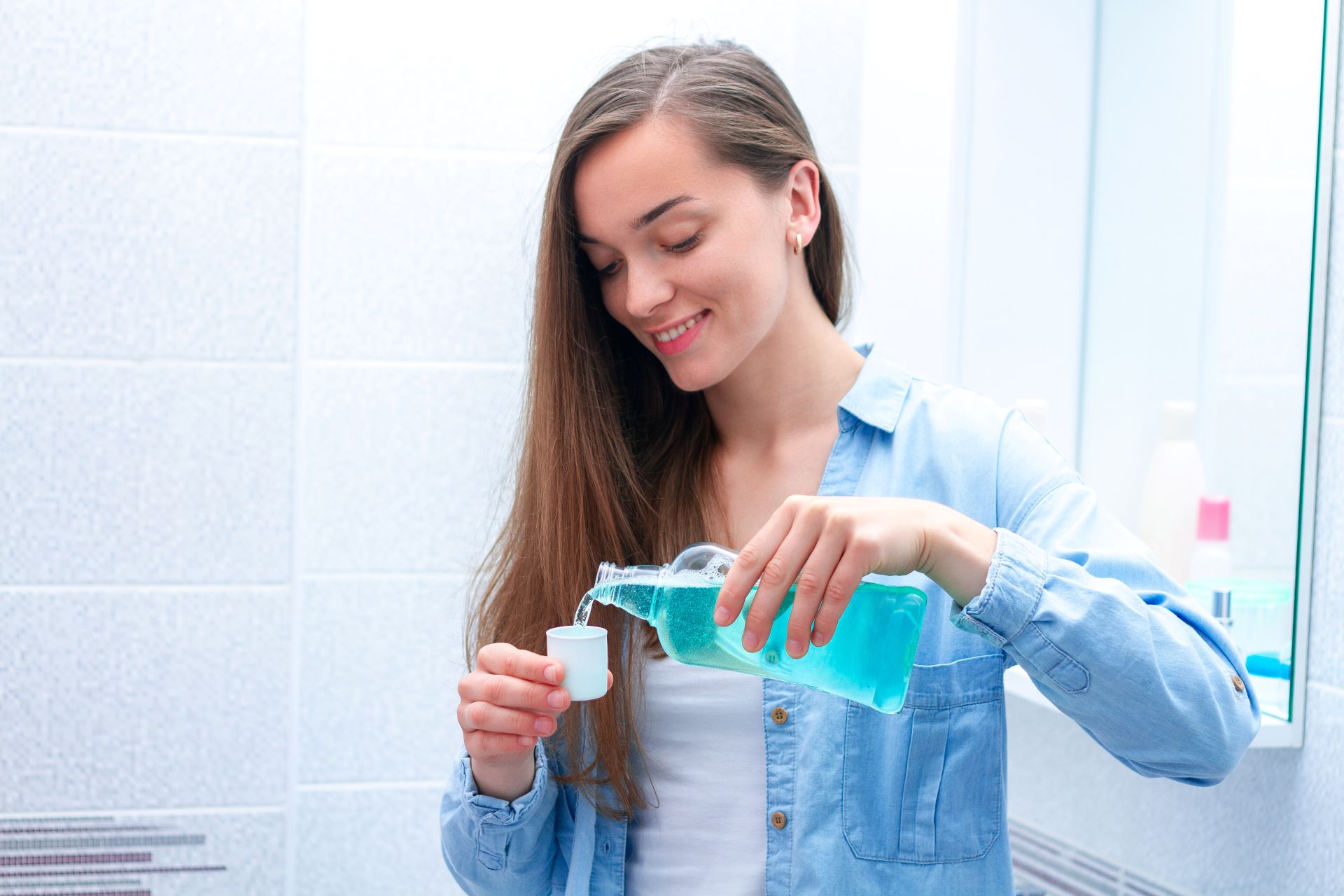8 Effective Ways to Maintain Fresh Breath and Boost Oral Hygiene

Nobody likes bad breath. While the occasional case of it is common, bad breath, known medically as halitosis, can be disconcerting and suggests an underlying dental problem. On the other hand, fresh breath boosts our self-esteem and shows a commitment to proper dental care. If you suffer from bad breath, thankfully we have a few simple habits that you can implement into your daily oral hygiene routine. Below are eight practical tips to preserve fresh breath.
Best ways to keep fresh breath:
Mouthwash
If you want to keep your fresh breath for longer, mouthwash can reduce the amount of bacteria in your mouth by up to 70 percent. These conventional mouthwashes have their uses, though some include artificial ingredients and alcohol, which can temporarily mask odors or dry out your mouth. If used every day over long periods, they can actually be bad for your mouth as the ingredients dry it out. To ensure a mild and efficient method of breath freshening, look for products labeled as alcohol-free and made of natural ingredients. Our mouthwash products are designed to reduce waste, refresh your breath, and make the world a little brighter. If you’re hoping to create an amazing environment for your customers and employees, our products at GotFreshBreath are worth testing out.
For example, a natural mouth rinse that consists of essential oils such as eucalyptus or menthol, which gives a cooling effect, and fluoride, which supports the prevention of cavities, is a great option. In addition, natural mouth rinses containing tea tree, aloe vera or peppermint oil are also favorable.
Flossing
Despite the fact that the majority of people do not floss on a regular basis, flossing is an important and fundamental technique to complement your daily brushing routine. When combined with brushing your teeth, flossing eliminates food particles and plaque that lie in between where your toothbrush cannot reach. Leaving these particles in your mouth will result in bad breath, as bacteria will be left to grow.
Try to floss your teeth at least once daily, and for some added freshness, do it right before bed so that you can wake up to a clean mouth and better breath.
Brushing Teeth
Having fresh breath depends mainly on the frequency of brushing your teeth. Teeth should be brushed at least twice a day using either a soft-bristled brush or an electronic toothbrush, combined with a fluoride toothpaste. In addition, your tongue and the roof of your mouth should be brushed to avoid bad breath caused by bacteria that accumulates in those places. Your toothbrush should be replaced every three to four months to assure health and comfort.
Using a Tongue Scraper
you might not like using a tongue scraper, but your tongue needs to be cleaned. Your tongue is full of bacteria from eating during the day, and can be a major cause of bad breath. So if you use a tongue scraper as part of your daily oral hygiene routine, you might be able to get some of that food bacteria off of your tongue, and that might get things a little bit cleaner.
We do recommend that you try a tongue scraper after you brush your teeth to get some bacteria off your tongue. Take your tongue scraper and scrape from back to front a few times. See how that feels, and if it feels clean, then maybe washing your tongue is not going to be so terrible after all.
Hydrate
Often, dry mouth is to blame for bad breath. Xerostomia, which is medical terminology for dry mouth, occurs when your body doesn’t produce enough saliva to keep your mouth moist. Saliva is crucial for rinsing away food particles and keeping your mouth at the proper pH, neutralizing mouth acids that can cause bad breath. If your mouth is dry, it’s not going to be as fresh as it could be.
There are some simple steps you can take to avoid dry mouth: drink water throughout the day, indulge in sugar-free lozenges or other sugar-free hard candies that stay in your mouth and stimulate saliva production. In addition, sugarless chewing gum can help stimulate saliva. In the evenings, sleep with a humidifier in your bedroom to add moisture to the air which can prevent dry mouth when you sleep.
Watch Your Diet
What you eat affects the smell of your breath. Certain strong-smelling foods and beverages, such as onions, garlic, coffee, and alcohol, can contribute to smelly breath. Insted, try adding to your diet foods that are mildly fibrous and crunchy, such as firm apples, carrots, and celery. Just remember to eat for your general health and your mouth will be happy with better breath.
Regular Dental Checkups
Don’t skip your routine dental check-ups and cleanings. While your dentist can give you individualized advice on how to maintain fresh breath, he or she can also identify underlying oral health problems that may be causing your foul breath. To maintain optimal oral health, try to schedule your dental cleanings and check-ups at least every six months.
Chew Sugar-Free Chewing Gum
If you’re on the move, chewing sugar-free chewing gum is a great way of keeping your breath in check. While you speak, chewing increases the flow of saliva which helps rid the mouth of bacteria and bits of food that can end up altering the smell of your breath. When you chew, choose a sugar-free gum with xylitol as the sweetener since it not only adds a sweet taste, but also reduces the levels of acidity and inhibits the growth of bacteria. Just remember that chewing gum is not a substitute for good oral hygiene habits. Gum should be chewed in addition to your daily routine of brushing, flossing and mouth rinsing, and should not replace that routine.
Conclusion
Fresh breath has a profound effect on a person’s overall health and self-esteem. You need to take care of your pearly whites with proper dental hygiene so your breath remains pleasantly fresh throughout the day. By following these simple yet powerful habits which are especially important for your oral health, you are directly contributing towards your overall health and wellness.

 Canada
Canada
 Mexico
Mexico
 Other
Other


